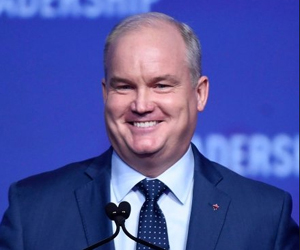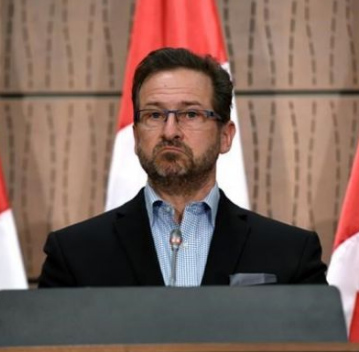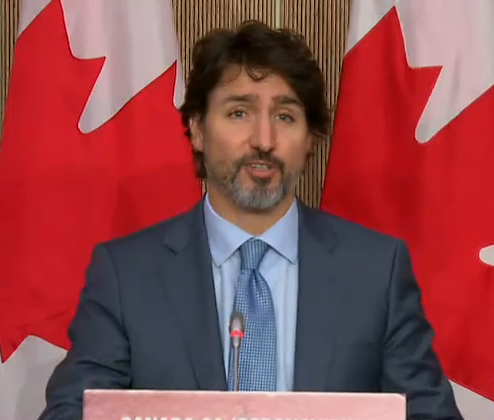Tuesday October 20, 2020 | NATIONAL [Updated 8 pm]
Editorial analysis by Mary P Brooke, editor | Island Social Trends
Snap elections seem to be all the rage during COVID-19. First there was New Brunswick, then Saskatchewan and BC. A now perhaps federally as well.
It’s a good opportunity for “the voters to have a say” as BC NDP Leader John Horgan has been saying in the provincial campaign here in BC.
It would not be missed by other jurisdictions (including federally) that a campaign during the pandemic is actually less expensive for campaigning (less travel and bookings of large venues) and it’s easier to control the message through digital platforms.
There is arguably less reliance on mainstream media, with the availability of social media at the candidates’ fingertips; therein also lies a potential problem for fair and democratic information being available to voters.

Another parallel to the BC scenario where the BC Greens had a brand new leader just one week before the election was called, is that federal Conservative Leader Erin O’Toole is also fairly recently elected (late August 2020, and then he was somewhat offline dealing with COVID-19 infection) — easier for the seasoned Liberal Party to surge ahead in terms of election preparedness.
Conservative motion could result in a federal election:
A motion today by the Conservatives in the House of Commons proposing the creation of a new parliamentary committee to probe Liberal controversies including the WE Charity affair is being challenged by Trudeau and the Liberals.
“It will be up to parliamentarians and the opposition to decide whether they want to make this minority Parliament work, or whether they’ve lost confidence in this government’s ability to manage this pandemic,” Trudeau said today, even though he also said that with COVID-19 cases on the rise again in Canada, that the pandemic is “far from over,” and that “nobody wants elections.”
While the WE Charity scandal does point to yet another indication of crossover between political management of the country and the financial interests of one political party (and/or its leadership), it’s unclear how much the Canadian population would see this as reason enough for an election during the second wave of a viral pandemic.
Parliamentary process:
Government House Leader Pablo Rodriguez declared Tuesday morning that when the motion to set up the committee that is now being debated in the House of Commons comes up for a vote, the Liberals will consider it a confidence vote.
If the motion passes with the support of all opposition parties (Conservative, Bloc and NDP), then the government could fall. Trudeau could trigger a snap election.
Given how the Liberals have leaned left to appease the NDP’s frequent requests this year for improvements to legislation on behalf of Canadians struggling in the pandemic, the Liberals likely be betting on the NDP to back them. But the NDP have been equally concerned about the WE Charity, so it puts them in a tough spot as to where they will throw their support.
In general, the NDP aligns more politically with the Liberals than the Conservatives. NDP Leader Jagmeet Singh expressed dismay over the brinkmanship at the expense of government stability for Canadians during a health emergency and economic crisis.
Seat count:
The Liberals have 154 seats and they will be opposing the motion. The Conservatives with 121 seats apparently have the support of the Bloc’s 32 seats. That means only two more votes are needed in order for the Conservatives to see their motion pass (there are two independents, three Greens and 24 NDP in the House of Commons). Trudeau has said it’s a confidence motion. So if the Conservatives get support and the motion passes, it triggers an election.
The Opposition “won’t be fooled”:

Bloc Quebecois Leader Yves-François Blanchet today said that ‘Canadians won’t be fooled’ by the clever setup of the Liberal motion. It’s likely that Trudeau is betting on the Conservatives not wanting to miss an opportunity to focus on the We Charity, and the Bloc leader has already said they will support the Conservative motion.
Trudeau has jumped at this opportunity. The scenario makes it easy for the Liberals to see an election triggered, without proactively calling it themselves (as Horgan did in BC, leaving himself open for some negative backlash).
Liberal desire for an election:
Why would the Liberals want an election? Well, they’ve been doing a lot of spending — in the muti-billions of dollars. That’s been due to providing social and business support during the pandemic. An election win now would give them the vote of the people to continue with their current approach (programs and spending on those). If the Liberals were to lose and a Conservative government was the result, the Conservatives would be left holding the bag on a federal deficit around $350 billion that was not of their own making.
Either way, the Canadian population is in a precarious spot … turf out Trudeau over the scandals of his government but in so doing risk the budget-cutting approach of the Conservatives at a time when people, businesses and communities are already bleeding for program ingenuity and financial support.
That Trudeau would call an election at at time when Canadians are also overburdened with all the stresses of the COVID-19 pandemic seems and feels unfair. It could bring a backlash upon the Liberals, similar — to some degree — to the backlash that Horgan has risked in the current provincial election.
Watching Ottawa on Wednesday October 21:
The vote on the confidence motion will come up in the House of Commons tomorrow afternoon Wednesday October 21 after Question Period.
If Canada is plunged into a federal election (on top of provincial elections at the moment in BC and Saskatchewan) that will be exactly one year since the 2019 federal election produced for Trudeau a minority government against which he has chaffed from the start.
Like most leaders with a particular vision, Trudeau had enjoyed the power of a majority during 2015-2019. Since the October 2019 minority government result he has had to cooperate a whole lot more. That’s been to the benefit of Canadians who saw social support legislation insisted upon by the NDP (which the Liberals had to agree to, to stay in power).
But minority-style governance doesn’t really suit Trudeau’s temperament. It could be said that the lost taste for the job heading into 2020 after his long family vacation in Costa Rica, only to return and find himself leading his country through arguably the greatest crisis in 100 years (on par with the Great Depression and World War II in terms of economic and social impacts). He could be tired of it all now, or he could be now reinspired. We’ll soon find out.



